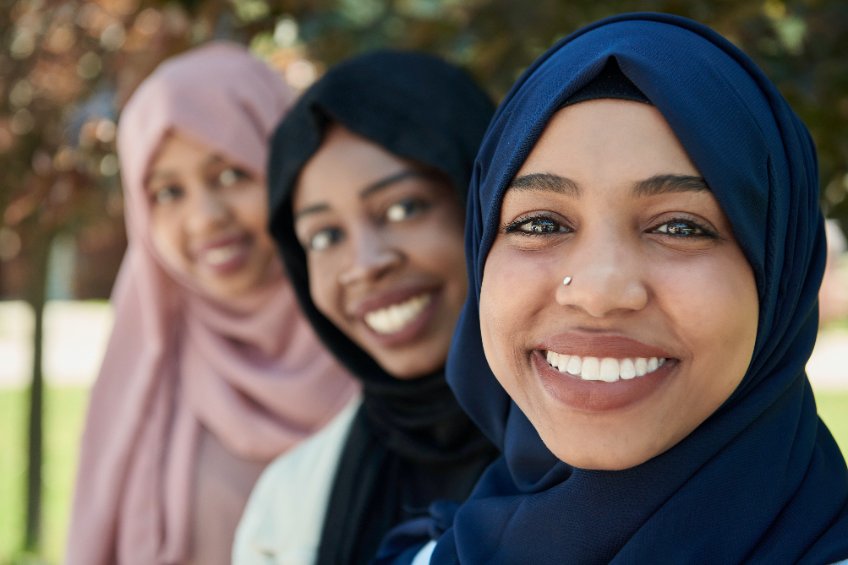Abstract
The perception that Islam oppresses women is often influenced by cultural biases, media portrayals, and political narratives. This article examines whether Islam inherently oppresses women or if oppression stems from cultural and political influences. By analyzing Islamic teachings, scholarly research, and real-world experiences, this study highlights the rights granted to women in Islam and challenges misconceptions that equate cultural practices with religious doctrine.
Introduction
Islam’s treatment of women has been a subject of controversy, with many critics citing dress codes, gender roles, and legal restrictions as evidence of oppression. However, a closer look at Islamic teachings reveals a strong foundation for women’s rights in areas such as education, finance, and personal agency (Ahmed, 1992). The Quran and Hadith provide numerous examples of gender equity, which are often overlooked due to cultural misinterpretations.
Women’s Rights in Islam
Pre-Islamic Context and Quranic Reforms
Before Islam, women in pre-Islamic Arabia had few rights. Islam introduced reforms that granted them inheritance, education, and personal agency. The Quran condemns female infanticide (Quran 81:8-9) and grants women financial independence (Quran 4:7). The Prophet Muhammad (peace be upon him) emphasized treating women with kindness, stating:
“The best of you are those who are best to their women.” (Sunan Ibn Majah 1977).
Education and Economic Rights
Islam mandates education for both men and women:
“Seeking knowledge is an obligation upon every Muslim man and woman.” (Sunan Ibn Majah 224).
Historical figures such as Fatima al-Fihri, founder of the University of al-Qarawiyyin, demonstrate that Muslim women have played significant roles in academia (Mohammad, 2012). Women also have the right to own and manage property (Quran 2:188), and while men are financial providers, women are not obligated to contribute.
Cultural Practices vs. Religious Teachings
Many misconceptions arise from conflating culture with Islam. For instance, while the hijab is seen as oppressive, many Muslim women wear it by choice as an expression of faith (Quran 24:30-31). Additionally, Islam grants women the right to initiate divorce (khula) if unhappy in their marriage (Quran 2:229), and forced marriages are explicitly prohibited (Sahih al-Bukhari 5138).
Political and Social Influences
In some Muslim-majority countries, patriarchal traditions have overshadowed Islamic principles, leading to gender inequality. However, these restrictions stem from cultural and political ideologies rather than religious doctrine (Mernissi, 1991). Gender oppression is not unique to Muslim societies, as restrictive laws in other parts of the world also limit women’s rights.
Conclusion
The belief that Islam oppresses women is often based on misconceptions and cultural misunderstandings rather than religious teachings. Islamic scripture grants women rights in education, finance, and marriage, while cultural and political factors contribute to gender oppression in some societies. Addressing these issues requires a global perspective that moves beyond stereotypes and acknowledges the distinction between religion and culture.
References
• Ahmed, L. (1992). Women and Gender in Islam: Historical Roots of a Modern Debate. Yale University Press.
• Mernissi, F. (1991). The Veil and the Male Elite: A Feminist Interpretation of Women’s Rights in Islam. Perseus Books.
• Mohammad, A. (2012). Islam and Women’s Education: Historical Perspectives. International Journal of Islamic Studies, 3(1), 45-67.
• The Holy Quran.
• Sunan Ibn Majah 1977, 224.
• Sahih al-Bukhari 5138.
Rukayatu Karim Baako is an 8th grade advanced student at Bear Creek Middle school in Atlanta Georgia and a scholar of Veritas Institute of Social Sciences (also in Atlanta). She represented her school at the Fulton County social studies fair, and won 1st Place. She recently made it through the regional level and is now going to the state level in May inshaAllah. She is the second oldest of four children and her favorite hobby is memorizing Quran.
Congratulations to Rakayatu!





